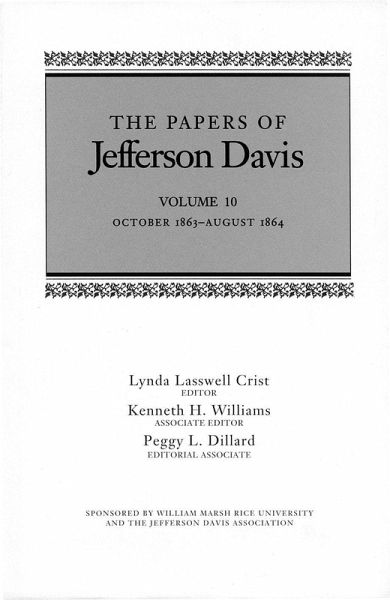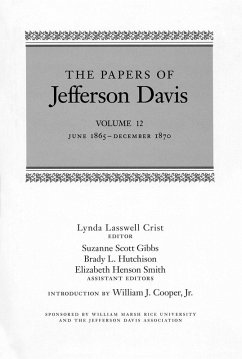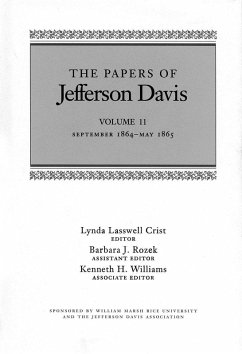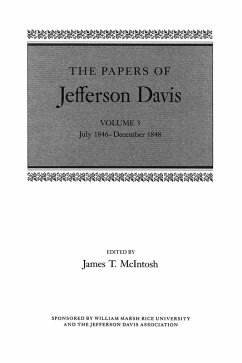
The Papers of Jefferson Davis (eBook, ePUB)
October 1863-August 1864

PAYBACK Punkte
8 °P sammeln!
Kenneth H. Williams, Associate Editor Peggy L. Dillard, Editorial Associate The autumn of 1863 was a trying time for Jefferson Davis. Even as he expressed unwavering confidence about the eventual success of the Confederate movement, he had to realize that mounting economic problems, low morale, and rotating army leadership were threatening the welfare of the new nation. Less than a year after the October 1863 Confederate victory at Chickamauga, the South relinquished Atlanta to Sherman. During the tumultuous eleven months chronicled in Volume 10, Davis retained his fervor for southern national...
Kenneth H. Williams, Associate Editor Peggy L. Dillard, Editorial Associate The autumn of 1863 was a trying time for Jefferson Davis. Even as he expressed unwavering confidence about the eventual success of the Confederate movement, he had to realize that mounting economic problems, low morale, and rotating army leadership were threatening the welfare of the new nation. Less than a year after the October 1863 Confederate victory at Chickamauga, the South relinquished Atlanta to Sherman. During the tumultuous eleven months chronicled in Volume 10, Davis retained his fervor for southern nationalism as he struggled furiously to command a war and maintain a government. As the letters contained here illustrate, he soldiered bravely on.
Dieser Download kann aus rechtlichen Gründen nur mit Rechnungsadresse in A, D ausgeliefert werden.













